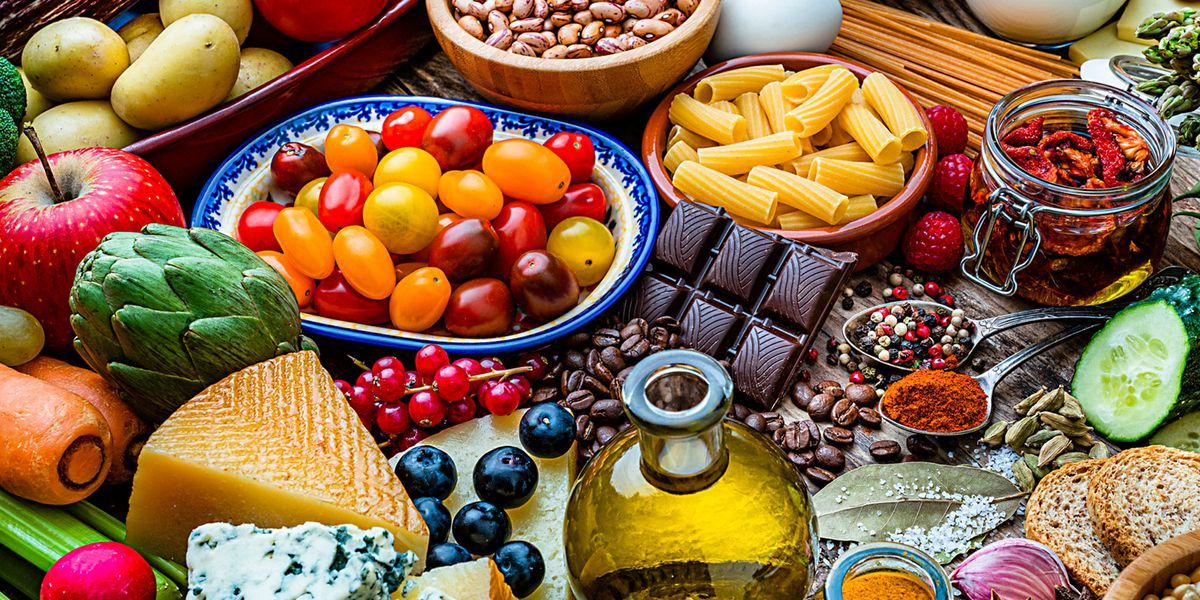
Many people who have cancer are unaware of the importance and value of nutrition. While most diets are intended to help someone lose weight and prevent them from developing cancer, many people fail to realize the importance of nutrition. Consuming a balanced diet is crucial in preventing disease and staying strong during treatment. Dr. John Shin is a Mayo Clinic Oncologist and hematologist who shares tips on how to eat healthy to fight cancer. For more information, you can listen to this podcast on iTunes, Tune-in Apple or Spotify.
While it is important to eat foods rich in nutrients, the Mayo Clinic Healthy Weight Pyramid encourages eating more vegetables, fruit, and lean protein. Lean meats, whole grains, and lean proteins are great sources of protein. Unsaturated fats may lower cholesterol and increase your risk of developing coronary heart disease. The meal can be completed with a calorie-free beverage. The diet is a fantastic way to eat well and lose weight.

The Mayo Clinic Diet encourages eating habits to be changed. The Mayo Clinic Diet doesn't restrict whole foods, but it recommends limiting certain food portions. To help you plan meals, the program provides meal plans and serving ideas. It promotes healthy foods, such as those from the Mayo Clinic Healthy Weight Pyramid. The Mayo Clinic Diet helps people lose weight. This diet isn't for everyone, but it is ideal for most people.
The Mayo Clinic Diet recommends eating a balanced diet that contains foods rich in fiber, protein, and healthy fats. The diet encourages a heart healthy diet full of low-fat and low-calorie foods. There are also options for vegans, vegetarians, and people following the Mediterranean diet. It also offers a low-fat, high-protein, ketogenic and vegetarian eating plan. The Mayo Clinic Diet can help you lose weight.
The Mayo Clinic diet includes whole-grain carbohydrates, lean proteins, and healthy fats. It promotes healthy portions, and lowers calorie intake. The Mayo Clinic diet is safe and effective in helping people lose weight. The Mayo Clinic diet is based on natural foods that are high in fiber, low in saturated fats, and healthy for you. If a diabetic follows this diet, they should see results in less than a week. Additionally, the diet offers many other benefits including lower blood pressure, inflammation, and more.

Although it is important that you eat lots of fruits and veggies, the Mayo Clinic Diet recommends that most of your diet should be made up of vegetables. This is because fruits and vegetables are the most nutritious types of foods. A variety of fruits, vegetables is important in your daily meals to ensure that you get enough vitamins and minerals. However, you can also include some protein in your daily meals. Depending on your energy requirements, you can adapt this diet to your needs.
FAQ
Is Cardio Better Than Strength Training?
Both are equally excellent. If you want to increase muscle mass faster, cardio is the better option.
Cardio burns more calories per hour than strength training, and also burns more fat.
Strength training is a great way to build muscle mass. However, it takes more effort than cardio.
How Metabolic health is key to aging well
People live longer lives than ever before. They are also becoming more sick as a result. While medical science has made incredible advances, it's becoming increasingly obvious that the current approach is not working.
It's time to change our perceptions of health and aging. Healthy aging is possible only if we look at our metabolic health, not just weight loss, but also overall well-being.
To live a full and active life, your metabolism should be healthy all your life.
There are many ways you can improve your metabolic health. One way to improve your metabolic health is to incorporate these seven foods into your daily diet.
-
Resveratrol has been proven to increase cellular longevity. They also contain antioxidants and vitamins C & E.
-
Pinto beans and lentils are great sources of fiber and plant-based proteins. These nutrients help keep blood sugar levels steady so they won't spike and crash.
-
Broccoli contains the antioxidant sulforaphane. This has been shown in studies to protect DNA. It may even slow down the progress of cancer.
-
Chia Seeds have high levels of omega-3 fatty oils and fiber. They are also rich in antioxidants, protein, and fiber. All of these nutrients are good for heart health, brain function, gut health, and overall health.
-
Green Tea contains polyphenols called catechins. Studies show that catechins in green Tea can reduce the risk of developing diabetes, stroke, cognitive decline, and bone fractures.
-
Salmonis packed with vitamin D, low in saturatedfat and one of best sources of lean meat.
-
Walnuts are high in omega-3s. They also contain antioxidants like alphalipoic Acid (ALA). ALA boosts energy production and reduces inflammation.
Can I drink alcohol while exercising?
Yes. Alcohol has increased energy expenditure, speed up recovery time, and reduced soreness.
Alcohol also increases insulin sensitivity, making it easier to absorb glucose.
However, alcohol can cause dehydration, which can slow down your metabolism. It also reduces testosterone production, which may decrease muscle-building potential.
Women shouldn't consume alcohol before exercising. Women who are heavily alcoholic should wait at minimum 24 hours before starting to work out.
Nursing mothers should abstain from alcohol as much as they can.
Men should have no more than one drink per day.
What is a good seven-day workout routine?
A seven day exercise program should include cardiovascular training (running or biking), strength exercises (using freeweights, weight machines) and one flexibility/core workout. Each activity should be performed at least once each week. Maximum 45 minutes should be allotted for each session.
Cardiovascular Exercise: Running/Biking/Swimming
Aim to do at least 60 minutes per week of cardio. For best results, aim for 75 minutes per week. Cardio exercise can improve blood flow and stimulate muscle development.
Strength Training
While cardio exercises target the heart and lungs, strength training targets the muscles and bones. Strength training can help you burn calories even when you're not working out.
Flexibility & Core Workouts
Flexibility and core workouts are great ways to strengthen your entire body. Both yoga and Pilates are excellent options.
How to build muscles quickly
The best way to quickly build muscle is to eat healthy and exercise regularly.
Mornings are the best time to workout.
Exercises such as push-ups and bench presses are good options.
Consider trying different weight training programs and drinking plenty of water throughout each day.
Statistics
- An estimated calorie range for moderately active adult males falls between 2,200 to 2,800 calories per day, depending on age. (eatright.org)
- According to the American Academy of Dermatology (AAD), men over 50 are at a heightened risk of developing it. (healthline.com)
- By John Thompson Take a whopping 38% off a set of PowerBlock Pros. (menshealth.com)
- According to the American Heart Association, blood pressure should be checked at least once every two years, beginning at age 20. (my.clevelandclinic.org)
- 10 pounds in a month is likely during a lean bulking phase, especially for beginners. (muscleandstrength.com)
External Links
How To
How can I exercise to burn fat?
Exercise reduces calories by increasing metabolism, and oxygen consumption.
If you exercise with moderate intensity, you can safely lose weight.
These tips will help you burn fat and keep fit while exercising.
-
Cardio exercises can include running, walking, swimming or cycling.
-
Exercise for 30 minutes three times per week.
-
You can add strength training into your exercise routine if you're looking to lose even more weight.
-
Avoid intense workouts. It is possible to build muscle without destroying muscle tissue.
-
Keep hydrated during exercise. Water flushes out toxins, and keeps your body properly hydrated.
-
After exercising, consume low-fat protein smoothies. Protein shakes are great for your muscles and energy.
-
Eat smaller meals throughout the day, so you don't feel hungry between meals.
-
Don't skip breakfast! You can feel tired and slow if you skip breakfast.
-
Mental health is important. Stressful situations can affect your metabolism.
-
Keep a positive attitude. Research shows that overweight people gain more weight if they believe they are overweight than those who believe they look good.
-
Get enough rest. Insufficient sleep can make it more difficult to lose weight.
-
Always be active. Get up every hour and get moving.
-
Maintain a healthy diet. Healthy eating will keep you fuller and more satisfied for longer.
-
Find ways to relax. Your body won't release stress hormones that cause muscle tissue destruction if you have a tense mind.
A balanced diet provides all the nutrients necessary for growth and development.
Six small meals per day is better than three large meals. This gives your body the time it needs to process what you've eat.
For strong bones to be maintained, you need approximately 500mg of calcium per day. Calcium is available in dairy products like milk, yogurt, fortified soy beverages, orange juice, cereal, bread, and cereals.
Calcium is found in green leafy vegetables, beans, tofu, seeds, nuts, and cheese.
Vitamin D is required for calcium absorption. Vitamin D can also be found in some fortified foods such as eggs, fish, and yolk.
Vitamin E is essential for skin health. Vitamin E is found in vegetable oils and wheat germ oil, as well as peanuts, almonds and sunflower seeds.
Your body requires zinc to function normally and for wound healing. Zinc is found in oysters, legumes, meats, whole grains, and seafood.
Zinc deficiency can cause fatigue and loss of appetite. It can also lead to depression and impaired immunity.
Consuming too much sugar can cause insulin resistance. This causes an increase in blood glucose levels. Insulin resistance leads to weight gain.
High levels of free radicals can lead to insulin resistance. Free radicals refer to molecules that contain unpaired electrons. They can damage cell membranes and other body parts.
Food additives, pesticides and herbicides, as well as preservatives, smoking and radiation are all sources of free radicals.
Free radical damage may lead to cancer, heart disease diabetes, arthritis, asthma and other conditions.
A well-balanced diet rich in antioxidants is the best way for you to avoid free radical damage. Antioxidants protect against oxidative damage.
Vitamin C, beta carotene (found within citrus fruits, carrots, sweet potatoes and spinach), Vitamin E (found inside nuts, olive oils, avocados and eggs), and Vitamin C (found among mangoes.
Selenium, copper and manganese are all antioxidant nutrients.
Selenium is known to protect cells from the oxidative damage that free radicals can cause. Selenium is also found in Brazil nuts.
Copper protects your eyes, brain, eyes and red blood cell. Copper can be found in shellfish and poultry as well as meat and organ meats.
Manganese is an essential component of bone structure. Manganese can also be found in oatmeal, brown rice, spinach and bananas.
Zinc is necessary for average growth, reproduction, and wound healing. Zn is present in lean cuts of meat and white fish, as well as eggs.